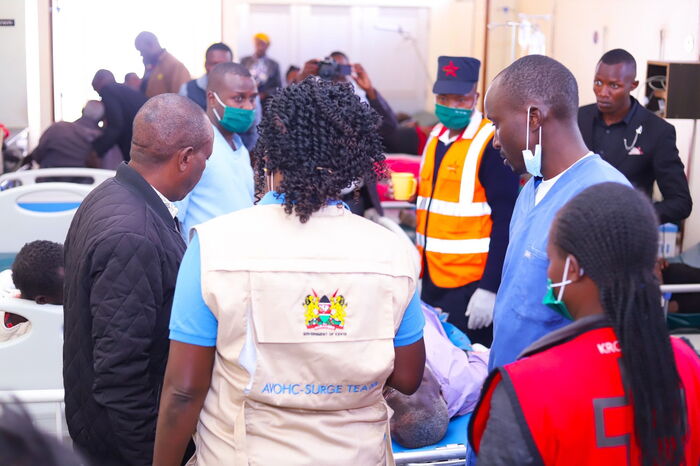UPDATE: By 4 p.m. on Sunday, January 19, at least 163 individuals, including children, were confirmed to have been hospitalized after consuming contaminated Mursik—locally fermented milk—across Lel Sotet, Masaita, and Kabianga areas in Kipkelion East, Kericho County.
The food poisoning incident initially saw over 70 people hospitalized, but the number quickly surged as more cases were reported.
Those affected, including women, elderly individuals, and children, had consumed the contaminated Mursik during a church graduation ceremony held in Masaita village, Kericho County.
Victims were rushed to Londiani Sub-County Hospital, where they are currently receiving treatment. Some of the affected are reportedly in critical condition due to severe dehydration.
Recurring Issue of Food Poisoning in the Region
According to medical personnel, this is not the first case of mass food poisoning they have handled in the region. Nurse Maureen Chepkoech at Londiani Hospital confirmed they had dealt with a similar incident just a few weeks ago.
“They came in with symptoms of food poisoning, and most of the affected are women, elderly individuals, and children. This is the second time we are handling such a case in a short period,” she stated.
Symptoms reported by victims include severe vomiting, diarrhea, and joint pain. The contaminated milk, which was supplied by a well-known vendor in the village, was suspected to be the cause.
One male victim recounted the harrowing experience:
“We started vomiting and experiencing unbearable joint pain.
It was terrifying, but we are grateful to God that the situation didn’t escalate further.”
Another victim, Betty Kirui, shared her struggles:
“I have two children admitted in another ward, and their father is also hospitalized. Since I got admitted, I haven’t been able to check on them. It’s been devastating.”
Children Severely Affected
Medical reports indicate that nine children among the victims suffered severe dehydration, requiring urgent medical intervention.
Local authorities have launched an investigation into the incident, urging residents to practice better hygiene when preparing and consuming Mursik.
Authorities emphasized the importance of ensuring the safety of traditional foods, especially Mursik, which is deeply rooted in the community’s culture.
The Risks of Traditional Mursik Preparation
Mursik is a staple in the Rift Valley region, where it is often consumed during cultural events and celebrations.
The milk is traditionally fermented in gourds or calabash containers, sometimes mixed with herbs or plant ash to enhance its flavor and preservation.
However, the preparation process frequently lacks adherence to proper hygiene and safety standards, increasing the risk of contamination.
Health officials have expressed concern over the recurring nature of such incidents, as food poisoning linked to Mursik consumption continues to be reported in the region.
In 2020, a similar incident in Mt. Elgon, Bungoma County, saw 20 individuals, including eight children, hospitalized after consuming contaminated Mursik.
Efforts to educate communities on safe preparation and handling of Mursik have been ongoing, but the persistence of such cases underscores the need for stricter health measures and public awareness.
Local leaders and health officials are calling for immediate action to prevent future occurrences, ensuring that such beloved traditions do not come at the cost of public health.
Join Kenyan Gen z and millennials official WhatsApp Channel To Stay Updated On time the ongoing situation https://whatsapp.com/channel/0029VaWT5gSGufImU8R0DO30
Tiktok – https://www.tiktok.com/@news.hub88?_t=ZM-8sz45qJid3V&_r=1


